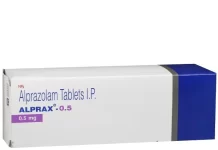Gilenya is a brand name for the medication fingolimod. It is primarily used to treat relapsing forms of multiple sclerosis (MS), a chronic autoimmune disease that affects the central nervous system. Here’s information about its uses, benefits, common symptoms, and potential side effects: Gilenya Tablet Uses Benefits and Symptoms Side Effects

Uses and Benefits of Gilenya:
- Multiple Sclerosis (MS): Gilenya is indicated for the treatment of relapsing forms of multiple sclerosis, including relapsing-remitting multiple sclerosis (RRMS) in adults and children aged 10 years and older. It helps reduce the frequency of relapses and slows the progression of physical disability associated with MS.
Common Symptoms and Side Effects of Gilenya:
- Headache: Headache is a common side effect of Gilenya treatment. It is usually mild and temporary.
- Fatigue: Fatigue or tiredness is another common side effect that can occur with Gilenya use. It may affect energy levels and daily activities.
- Elevated Liver Enzymes: Gilenya can cause elevation of liver enzymes, which can be detected through blood tests. Regular monitoring of liver function is important during treatment.
- Infections: Gilenya can increase the risk of infections, including respiratory tract infections and herpes viral infections. It is important to promptly report any signs of infection, such as fever, cough, sore throat, or skin sores, to your healthcare provider.
- Bradyarrhythmia and Heart Rate Changes: Gilenya can cause a slowing of the heart rate (bradyarrhythmia). Your healthcare provider will monitor your heart rate before starting Gilenya treatment and during the initial dose escalation period.
- Macular Edema: Macular edema, a swelling in the central portion of the retina, has been reported in some patients taking Gilenya. Regular eye exams are recommended during treatment.
- Immune System Suppression: Gilenya can suppress the immune system, which may increase the risk of certain infections. Vaccination schedules should be discussed with your healthcare provider.
It’s important to take Gilenya as prescribed by your healthcare professional and follow their instructions regarding the dosage and frequency of administration. Your healthcare provider may monitor your blood pressure, heart rate, and other parameters during treatment initiation and thereafter.
Inform your healthcare provider about any pre-existing medical conditions, medications, or supplements you are taking to ensure the appropriate use of Gilenya. If you have any concerns or experience troubling side effects while taking Gilenya, consult with your healthcare provider for further evaluation and guidance. They can provide personalized advice based on your specific medical history and condition.
Gilenya Tablet Uses Benefits and Symptoms Side Effects Gilenya Tablet in hindi Gilenya Tablet in hindi






